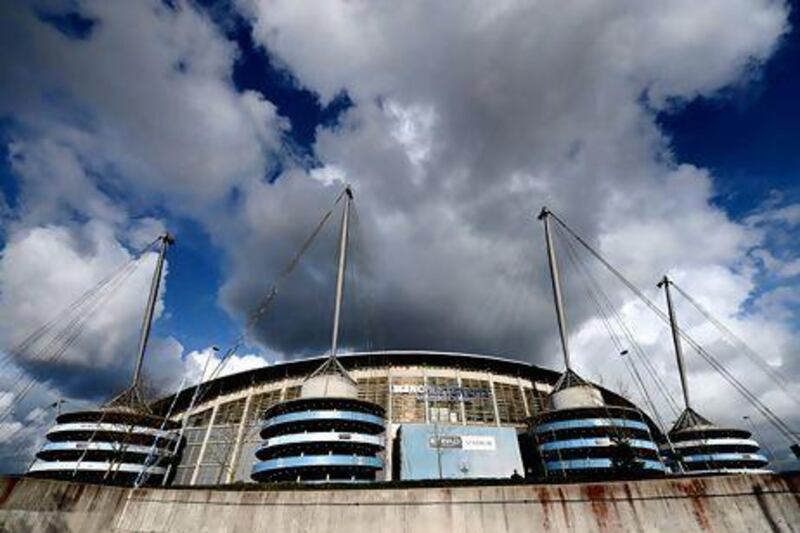As football fans prepare for the start of the English Premier League season next weekend, homeowners around Manchester City's Etihad Stadium can already celebrate being top of the league.
According to a survey of the prices of homes around football grounds by the British mortgage lender Halifax, house prices in their area rose by the highest in the league over the past decade.
Homes around the ground of Sheikh Mansour bin Zayed-owned City increased in value by 259 per cent from 2003 to shortly before last season's Premier League season ended in April.
The increase in average property values in Manchester's M11 postcode area, from £34,550 in 2003 to £89,489 (Dh509,687) this year, driven mainly by the urban regeneration surrounding the 2002 Commonwealth Games, is the highest in the Premier League and nearly double the average 135 per cent increase recorded.
According to Halifax, the average house price in the 20 Premier League stadium postcode areas stands at £319,800, a third higher than the average for the whole of England and Wales at £240,300.
The average house price in the postal districts of the 20 top clubs rose from £136,300 in 2003 - an increase the equivalent of a weekly price rise of £353 - double the 68 per cent increase in house prices across England and Wales as a whole over the period.
The area around newly promoted Hull City's KC Stadiumhad the second biggest increase, with a rise in average property prices of 162 per cent, while house prices in London's SW6 postcode area, where both Chelsea and Fulham play, rose 102 per cent - the third highest increase recorded.
Newcastle United, who struggled in the top flight last season, were bottom of the Premier League house price table, with the average value of properties close to its ground falling by 11 per cent over the 10-year period - the only stadium area to record a decline in prices.
Manchester City, pipped to the league title by rival Manchester United last season, will doubtless be pleased to note that average house prices around United's Old Trafford ground rose just 68 per cent over the period - less than half the average increase.
"The areas surrounding many of the country's top football clubs have seen house prices rise considerably during the past 10 years, with some of the best performers being those clubs with new grounds," said Craig McKinlay, Halifax's mortgage director.
"The boost to property prices in these areas partly reflects the local regeneration that typically takes place alongside the building of modern sporting arenas, including improved transport links."
Manchester City moved to the City of Manchester Stadium from their traditional Maine Road ground in 2003 as part of a wider council-led masterplan to revamp the run-down area of East Manchester by hosting the Commonwealth Games and to redevelop industrial land, much of which had been part of the Bradford Colliery.
The area is also home to the Manchester Velodrome and the National Indoor BMX Arena, also built for the 2002 Games.
Property developers have built hundreds of houses and flats in the area, increasing the housing supply and pushing up average prices. However, some traditional terraced houses in the area are currently being put up for auction for around £30,000.
"In 1999 the housing market in East Manchester was in a state of collapse, typified by wide-scale abandonment and private houses being sold for less than £2,000 each," a spokesman for Countryside Properties, one of the property developers active in the area, said.
"It was essential that the new homes not only successfully regenerated East Manchester's residential housing market, but provided a new high quality environment at the heart of the regeneration area."
Further development around the Etihad Stadium is on the cards.
In 2010, Manchester City signed an agreement with the local council and regeneration agency New East Manchester to look at redeveloping 200 acres of land in the area as a £500 million sports and leisure project. Work on a £50m top of the range club headquarters and training facility is currently under way.





